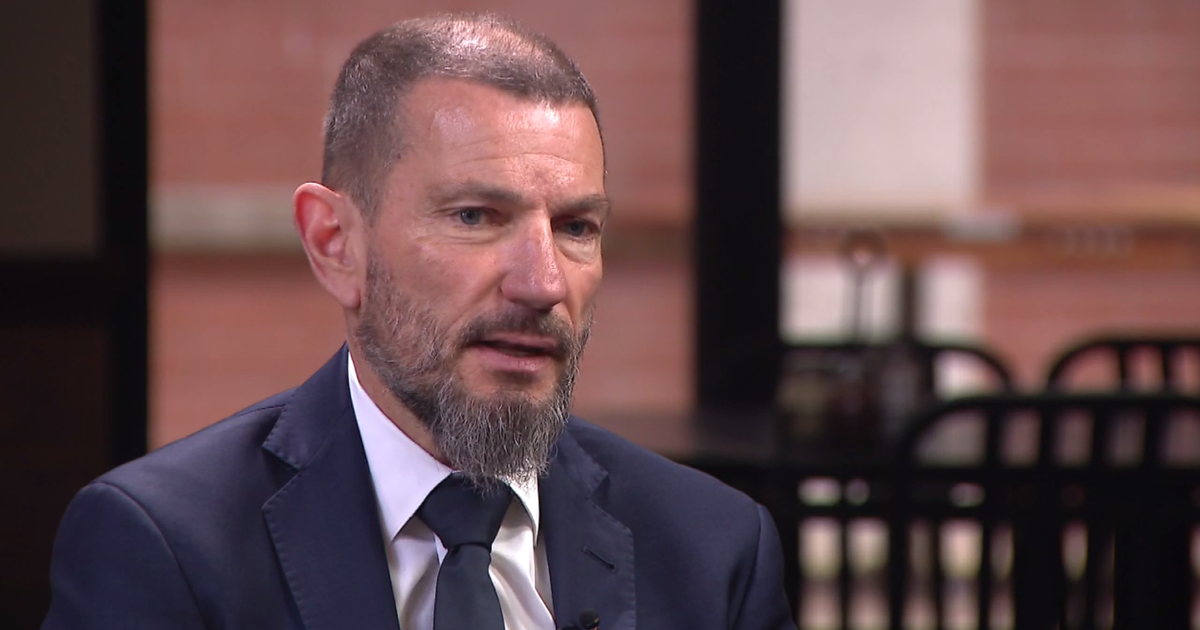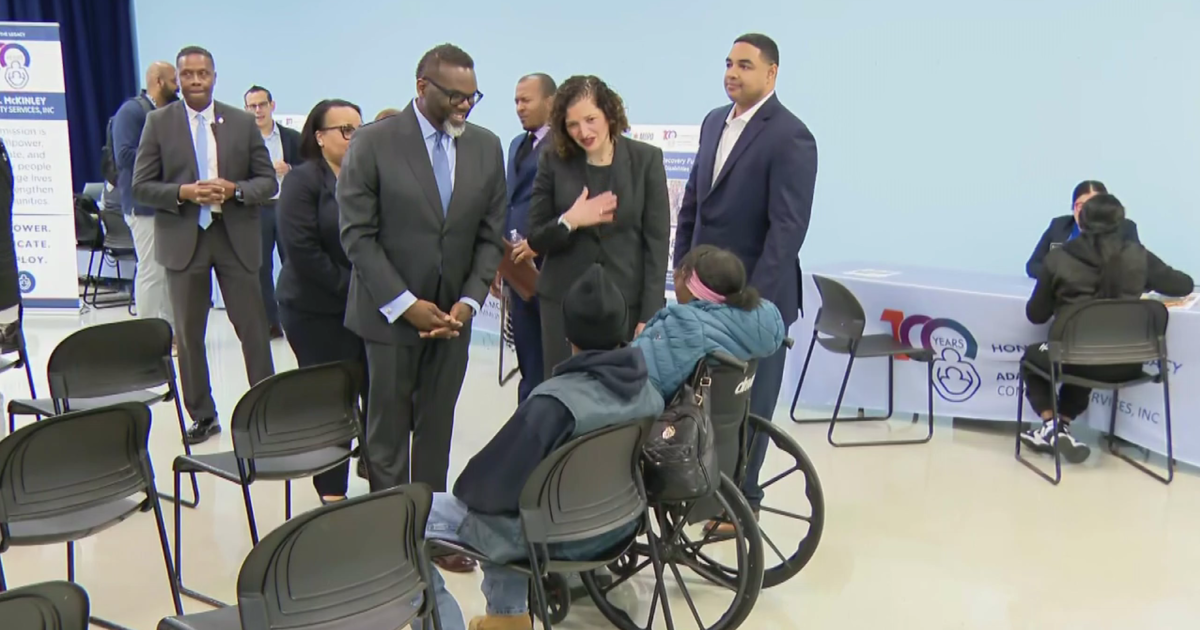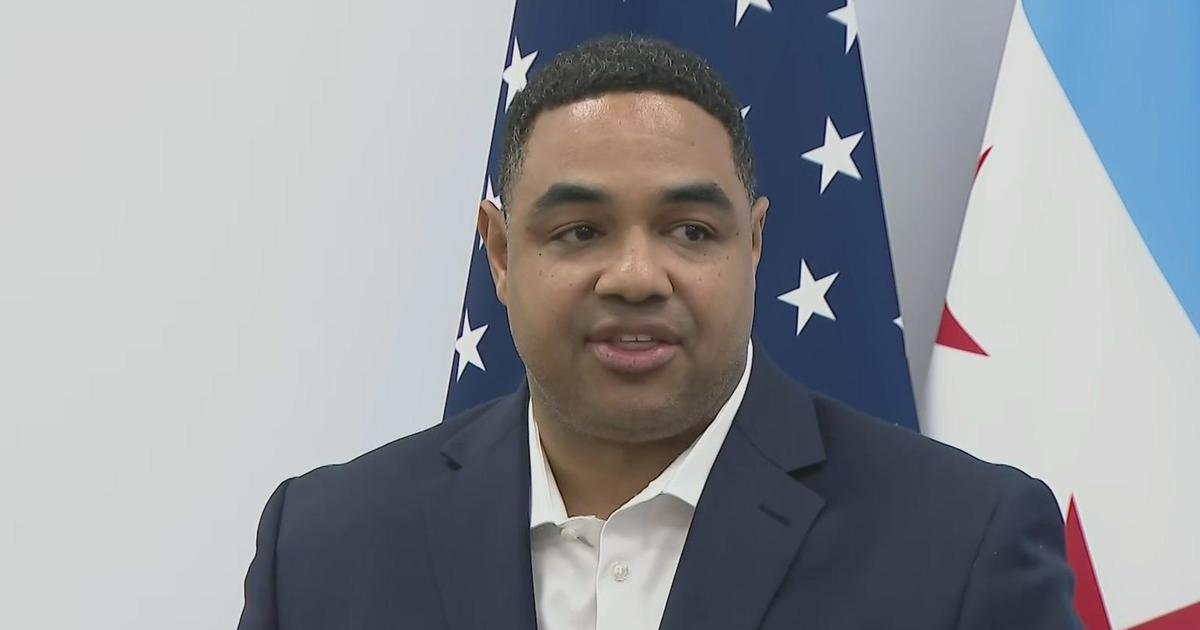City Council passes Mayor Lori Lightfoot's $16.4 billion budget plan for 2023
CHICAGO (CBS) -- The Chicago City Council on Monday narrowly approved Mayor Lori Lightfoot's election-year budget plan for 2023, a spending plan that does not include a property tax hike for the first time since she took office.
The mayor's $16.4 billion spending plan and the so-called "revenue ordinance" that outlines various city fines, fees, and taxes that fund it passed by a 32-18 vote. The mayor's proposed $1.7 billion property tax levy passed by a 29-21 vote.
Lightfoot said approval of her budget plan helps assure the city improves its financial standing as the city continues to emerge from the economic damage caused by the COVID-19 pandemic.
"What this budget passage makes plain is that no matter what the challenges or adversities we face, we've addressed them – the hard truths about our city – and tackled them head-on by serving our people, meeting their needs, and ensuring their work is reflected in everything that we do every day," Lightfoot said. "We all know there is more work to do to meet the moment, but also to continue on the path of righting historic wrongs, and giving true meaning to equity and inclusion as our North Stars."
As she prepares to run for re-election next year, Lightfoot did not seek an increase in property taxes in her 2023 budget plan, after reversing course earlier this year on plans for a 2.5% property tax hike, which would have amounted to $42.7 million, or about $34 a year for the owner of a $250,000 home.
Two years ago, Lightfoot convinced aldermen to approve annual property tax hikes tied to the consumer price index, but capped at 5% a year. During her August budget forecast, Lightfoot said she would only seek half that amount, but later abandoned that plan when it became clear aldermen would not support a tax hike.
In announcing she'll skip plans for a property tax hike in 2023, Lightfoot has said she is only planning to forgo the annual property tax hikes for one year.
Ald. Raymond Lopez (15th), who is one of three sitting aldermen running against Lightfoot for mayor in 2023, and has routinely voted against her budget proposals, had the harshest words for her spending plan during Monday's debate.
Lopez said the mayor's budget plan includes 20% of bloat, thanks to hundreds of vacant positions in the spending plan. He said funding so many positions that will continue to go unfilled essentially amounts to stealing from taxpayers.
"We are charging taxpayers every single year to fund it. Short of calling it a theft of service, I don't know what you call it, because we're asking our taxpayers to pay for things that we are never going to fulfill," he said. "It is shameful that we are here again. It is disgusting that we are still promoting this myth of the feel-good nonsense that we're trying to do, when in fact the execution of this budget falls squarely on one individual who has no intention of providing the services that so many people need."
Critics say Lightfoot not doing enough to retain police officers
Ald. Tom Tunney (44th), who is mulling a bid for mayor, but has yet to formally announce his candidacy, said he can't support the mayor's budget plan at a time when so many Chicagoans don't feel safe, and the Chicago Police Department has approximately 1,000 fewer officers than just a few years ago.
"My residents don't feel safe, they don't feel their money is worth it, and my police officers' morale is at an all-time low. You know it. Everybody knows it, whether it's the West Side, or the South Side, or on the North Side. People do not go out at night anymore. I mean, what kind of city are we living in with this kind of police lack of resources," he said.
Tunney said, despite its budget increasing over past few years, the Chicago Police Department still is not doing enough to retain officers to limit the number of retirements and resignations.
"You talk to a police officer, and they're waiting until their retirement is ready. They're counting their days," Tunney said. "This department is fully funded, undermotivated, and not doing the job to keep the city safe, and I just feel I cannot continue to perpetuate this kind of budget without speaking my mind."
The mayor's budget plan includes an additional $100 million go to public safety – to be used, in part, for the purchase of new helicopters and police cars.
Ald. Brendan Reilly (42nd) said those will do nothing to improve safety in Chicago without stemming the tide of retirements and resignations from the Chicago Police Department.
Reilly echoed Tunney's argument that the city isn't doing enough to retain existing officers, and defended himself and his colleagues against criticism from Lightfoot last week that aldermen who vote against her budget plan can't call themselves pro-law enforcement, accusing them of trying to have it both ways.
"Just because aldermen identify major flaws in the administration's budget does not mean they are against every aspect or program within that budget. Let's be clear, there are flaws in this budget," Reilly said.
Ald. Sophia King (4th) – who, like Lopez, is one of three aldermen running against Lightfoot – said, "I do not think that this budget addresses gun violence in a significant way."
King said it is a "travesty" that the City Council allocated more than $85 million for violence prevention programs in the 2022 budget, but has so far spent only about $5 million. She said she has no confidence that the 2023 budget will do any better.
Pushback on Lightfoot's failure to fulfill campaign promise to restore Department of Environment
Lightfoot's spending plan falls short of her 2019 campaign promise to revive the Chicago Department of Environment disbanded by her predecessor, former Mayor Rahm Emanuel. Rather, it only creates a new Office of Climate and Environmental Equity, which will be tasked with helping the city to tackle issues related to pollution and climate change, while conducting a feasibility study on resurrecting Environment Department.
That plan wasn't enough for progressive aldermen who have been pushing the mayor to fulfill her campaign promise.
"We could have done more. We could have done better. And we should," said Ald. Maria Hadden (49th).
The mayor's critics said the fight debate over creating an Office of Climate and Environmental Equity rather than a Department of Environment was about more than just what the agency is called, noting a city department can set rules for implementing city policies, while city offices can only recommend policy.
Ald. Carlos Ramirez-Rosa (35th) also noted that the mayor's proposed Office of Climate and Environmental Equity will have only 10 employees, while her press office has 15.
"What does that tell you about our city's priorities? While people are dying in record heat waves, while people are seeing their livelihoods destroyed in record floods, we have less people to tackle the issue of the environment than we do to send out press releases," he said.
Ald. George Cardenas (12th), the mayor's deputy floor leader and chair of the city's Committee on Environmental Protection and Energy, said he would also prefer to have a full-fledged Department of Environment right away, but accused those voting against the mayor's plan of nitpicking.
"Don't tell me it's raining when it's sunny. That's all I'm saying. Let's be honest. Let's have a true debate about something you may not like. But the fact of the matter is this city is running," Cardenas said.
Spending on mental health treatment
Ramirez-Rosa and other progressive aldermen also took Lightfoot to task for failing to honor her 2019 campaign promise to reopen several city mental health clinics that were shuttered by Emanuel.
Rather, the mayor has focused on expanding city funding for non-profit groups that provide mental health services across the city.
Ald. James Cappleman (46th) defended the mayor's approach, noting that, in 2019, 11 of the city's 77 neighborhoods had access to mental health care, and by end of this year, all 77 neighborhoods will. Cappleman also said the city spent $12 million on city-funded mental health services in 2019, serving 3,651 people in city clinics. This year, the city spent $89 million on mental health services, and will serve an estimated 60,000 this year at nonprofit mental health groups funded by the city, with that number expected to grow to 75,000 next year.
However, Ramirez-Rosa said the treatment figures provided by the non-profit agencies the city funds have "never been independently verified."
"That number could include them handing out a stress ball to someone at a community fair," Ramirez-Rosa said.
Ald. Rosana Rodriguez-Sanchez (33rd) said she supported Lightfoot's 2022 budget plan, because it allocated $6.3 million to hire 29 new employees at the city's existing public mental health clinics, but she said the city has only hired four new clinicians as of Monday's budget vote.
"We were promised many things in last year's budget," she said. "Most of those were not fulfilled."
Rodriguez-Sanchez also wanted the city to spend more on the city's Crisis Assistance Response and Engagement program, a pilot program which deploys mental health practitioners alongside paramedics to respond to 911 calls that involve a mental health crisis, without involving police officers.
That program has been operating in four neighborhoods since September 2021, and progressive aldermen ultimately want it expanded citywide.
"We're not asking for too much," she said. "I think that we should all take a look at what we have been able to accomplish, and what we have not."



